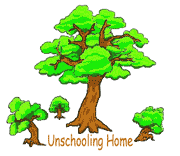What is "just semantics"?
|
What is semantics?
Semantics is the study of meaning. It is a wide subject within the general study of language.
. . . .
The study of semantics includes the study of how meaning is constructed, interpreted, clarified, obscured, illustrated, simplified negotiated, contradicted and paraphrased.teachit.co.uk/armoore/lang/semantics.htm
|
"Semantics" has to do with considering the meanings of words. When someone says "that's just semantics," it's used idiomatically—a phrase repeated whole, parroted. It's a put-down. It means "You're about to talk about words, but words don't matter." Or it means "suggesting that two words don't mean the same thing will be branded cheating in this discussion if this bullying gesture causes you to back down." But often the people using the phrase aren't clearly aware of their intent. Probably it's because they're not too interested in the meanings of words.
For clarity of thought and for value of discussions about unschooling (or anything), it's important to use words intentionally and carefully. If a parent can't tell the difference between "consequences" and "punishment" and doesn't want to even try to, she'll probably keep punishing her children and telling herself it's not punishment, it's consequences. That muddled thinking can't lead to clarity nor to better parenting.
Untangling confusion with words often takes the use of other words, which is why people whose primary interests don't involve language can become very frustrated with others who say "But 'principle' is NOT just another word for 'rule'."
Someone on the Unschooling Discussion list wrote "personal interactions rather than formal classes are the key to training our children."
I responded: "The idea of 'training your children' can prevent unschooling from
blossoming."
The response was, "When I say training, I really mean fostering learning. Just a matter of semantics."
Joyce wrote, "It's actually way more than a matter of semantics. The precision of word use is actually hugely useful to unschooling and helpful to the list....The clearer the wording, the clearer someone will be able to think
about something."
read the exchange in full here
In 2019, someone said I was "playing tricks with language," to suggest people could see learning without defending "teaching." The quote:
"Everything you do is teaching and modeling whether you want it to be or not. Tricks with language are just tricks."
The "just semantics" argument in various topics
You can read the full versions of these quotes at the links provided:
"You are right- for the purposes of being absolutely clear and not having you waste your time by pointing out the semantics of what I said..."
Pointing out the words people use is never a waste of time.
A hundred times or more people have said "just semantics" and "stupid" about me saying "don't say teach," which I've been doing for years. Every time someone says "taught" or "teach" they can slip back into the whole school thing and be seeing the world through school-colored glasses. If they do what it takes, mentally and emotionally, to recast their reports and then their thoughts in terms of who *learned* something, then they can start to see the world in terms of learning.
I've gotten much flak back from people saying it doesn't matter, or that's "just semantics."
Choice is a really important concept—not just semantics. It's the difference between anger, regret, resentment and happiness, comfort and joy in life.
—Danielle Conger
We have the ability to choose gratefulness in any situation. For me, this has been life changing, though I still have a long ways to go! And I have tried very hard to take the words "have to" out of my vocabulary. Some of you may feel it's just semantics, but it's empowering to see everything I do as a choice.
English
"Language Arts"
